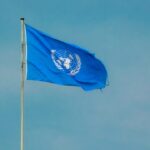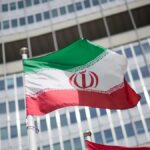Chinese leader Xi Jinping will travel outside of China for the first time in more than two years to meet with Russian President Vladimir Putin this week.
Xi and Putin will meet face-to-face in Kazakhstan on Wednesday at a time when both of their countries are facing staunch international criticism — Russia for its invasion of Ukraine and China for its increasing aggression toward Taiwan.
The two countries are the leading global opponents of Western power, and Xi has sought to establish himself as the autocratic counterpart to the U.S. President Joe Biden has stated that the competition between the U.S. and China will determine whether the world turns toward democracy or autocracy.
The meeting comes days after Putin’s forces suffered a devastating defeat in Ukraine, with Ukrainian forces retaking swaths of northeastern Kharikiv in a sharp counteroffensive. Multiple reports say Russian soldiers dropped their weapons and fled in disguise ahead of the Ukrainian advance.
TAIWAN REJECTS CHINA’S ‘ONE COUNTRY, TWO SYSTEMS’ PLAN FOR THE ISLAND
“They came into our houses to take clothes so the drones wouldn’t see them in uniforms,” local resident Olena Matvienko told The Washington Post. “They took our bicycles. Two of them pointed guns at my ex-husband until he handed them his car keys.”
Meanwhile, Xi’s regime is conducting increasingly aggressive military drills surrounding the island of Taiwan. China has long claimed sovereignty over the island, despite it having its own sovereign and democratic government.
The U.S. has sought to dissuade China from using Russia’s invasion of Ukraine as an excuse to do the same in Taiwan. House Speaker Nancy Pelosi flew to the island in early August, the highest-level U.S. official to make the trip in 25 years.
While Pelosi’s visit outraged China, it is far from uncommon for U.S. lawmakers to visit Taiwan. A group of six members of Congress flew to the island in April. Five more made the trek a week after Pelosi.
Nevertheless, China argues the visits violate America’s One China Policy, which states that the U.S. acknowledges the Beijing government as the only government of China. It also states that the U.S. will not hold formal diplomatic ties with Taiwan.
Taiwan split from mainland China in 1949, when democratic forces fled to the island after losing a civil war against the Chinese Communist Party.




